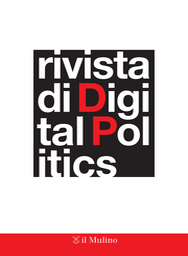New Publication! | The Geopolitics of Digital Twins: A Tale of Three Cities

The Geopolitics of Digital Twins: A Tale of Three Cities
The Internet & Communication Policy Center (ICPC) is pleased to highlight a new publication in Rivista di Digital Politics, titled The Geopolitics of Digital Twins: A Tale of Three Cities. This paper investigates how real-time, data-driven models—known as Digital Twins—function as socio-technical assemblages that carry profound political implications.
By creating real-time, data-driven models of physical objects, systems, or processes, Digital twins (Dt) enable new economic, societal and political interactions. Since the design and the deployment of Dt is still in its infancy, there is a lack of shared definitions, common standards and empirical data about their use and their political implications. However, it is widely recognized that the rise of Dt is not merely a technological advancement but a paradigm shift in human-network interaction, with profound political consequences. While there is a discrete literature that addresses possible political implications of Dt, there is still a lack of studies about the processes of political shaping of technology which explores how Dt are shaped by power dynamics and strategic competition. This paper seeks to partially fill this gap by answering the following research questions: what technologies are constitutive of Dt, and who controls them? The paper first outlines and contextualizes the rise of the Dt from theoretical, historical, and political perspectives. It then presents a conceptualization of the digital twin as a socio-technical assemblage of different technologies, including sensors, robotics, data management systems, artificial intelligence, telecommunications, cloud and digital certifications. For each one of these components, a technopolitical analysis is conducted through the use of a heterogeneous set of secondary data, in order to assess the level of power concentration in each technological sector that is constituent of the Dt. Findings are finally discussed from a geopolitical perspective, which emphasizes some important aspects related to authority and control of the Dt in democratic societies.
ICPC invites readers to explore this innovative study and consider its implications for the governance and strategic competition surrounding emerging digital infrastructures.



Comments are closed, but trackbacks and pingbacks are open.